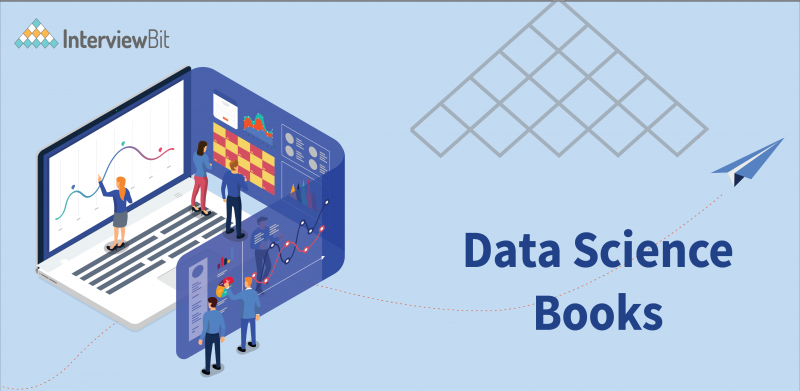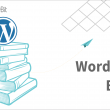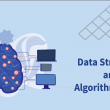- Introduction
- Top Data Science Books for Beginners
- 1. Data Science for Beginners
- 2. Data Science for Dummies
- 3. Introduction to Probability
- 4. R for Data Science
- 5. Data Science from Scratch
- 6. Build a Career in Data Science
- 7. Practical Statistics for Data Scientists
- Top Data Science Books for Experts
- 8. Essential Math for Data Science: Calculus, Statistics, Probability Theory, and Linear Algebra
- 9. Hands-On Machine Learning with Scikit-Learn & TensorFlow
- 10. Storytelling with Data: A Data Visualization Guide for Business Professionals
- 11. Smarter Data Science: Succeeding with Enterprise-Grade Data and AI Projects
- 12. Deep Learning
- 13. Pattern Recognition and Machine Learning
- 14. Data Science and Big Data Analytics
- Conclusion
- FAQs
- Q.1: Are 6 months enough to become a Data Scientist?
- Q.2: Is Python best for data science?
- Q.3: What programming language is best for data science?
- Q.4: Is Data Science hard?
- Additional Resources
Introduction
Data Science, a lucrative and popular career, is set to remain dynamic and challenging for the next decade. The increasing adoption of data science applications by businesses fuels the demand for skilled professionals. Rooted in statistics, computer science, and predictive analytics, data science finds widespread use in healthcare, marketing, finance, and policy work.
The exponential growth in data, reaching 40 zettabytes by 2020, underscores the field’s significance. Over 90% of this data has been generated in the last two years, propelling advancements in AI and machine learning. A notable shift is the broadening accessibility of data science resources, addressing the growing demand for specialized skills in managing AI and ML initiatives. Learn More.
This blog introduces top data science books, catering to various proficiency levels, to assist individuals on their data science journey. Let’s delve in!
Confused about your next job?
Top Data Science Books for Beginners
1. Data Science for Beginners
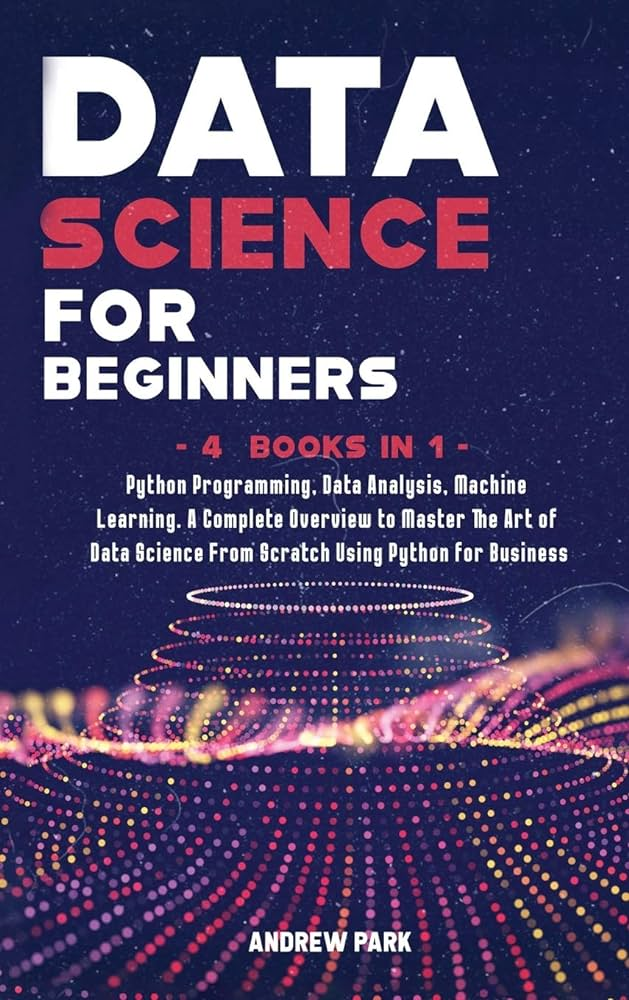
- Author: Andrew Park
- Website: Amazon.com
About the Book: If you’re completely new to data science, then this four-book set for beginners is for you. Together, these data science books provide a solid basic understanding of Python, data analysis, and machine learning. Each book offers step-by-step instructions and tutorials on leveraging the popular Python programming language for creating neural networks, manipulating data, and mastering the basics. The set includes:
- Python for Beginners
- Python for Data Analysis
- Python Machine Learning
- Python Data Science
2. Data Science for Dummies
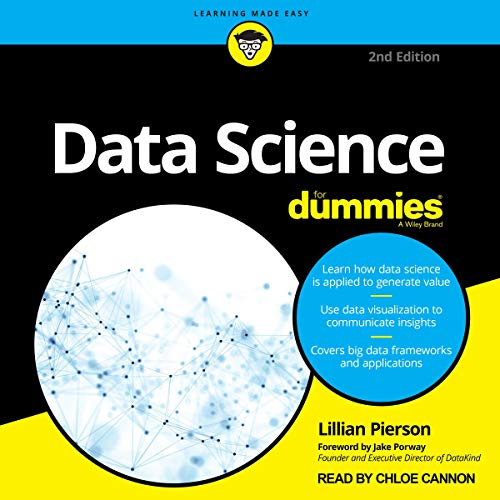
- Authors: Lillian Pierson (Author) and Jake Porway (Foreword)
- Edition: 2nd Edition
- Website: Amazon.com
About the Book: Data Science for Beginners serves as an introduction to the field for individuals who are just starting. Lillian Pierson delves into the essentials of data science, which encompass MPP platforms, Spark, machine learning, NoSQL databases, Hadoop, big data analytics, MapReduce, and artificial intelligence. Though it is not a step-by-step manual, the book offers an overview of data science. The book makes this complex field more accessible and approachable to IT professionals and technology students.
3. Introduction to Probability
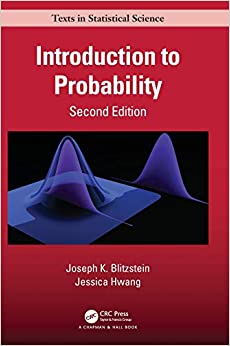
- Authors: Joseph K. Blitzstein and Jessica Hwang
- Edition: 2nd Edition
- Website: Amazon.com
About the Book: This book is one of the best for learning about probability, offering clear explanations and real-world applications. It provides a strong foundation in basic principles, vocabulary, and techniques for understanding statistics, unpredictability, and uncertainty. The book covers a wide range of applications and case studies. A code is included in the print book version that grants free access to an eBook version.
4. R for Data Science
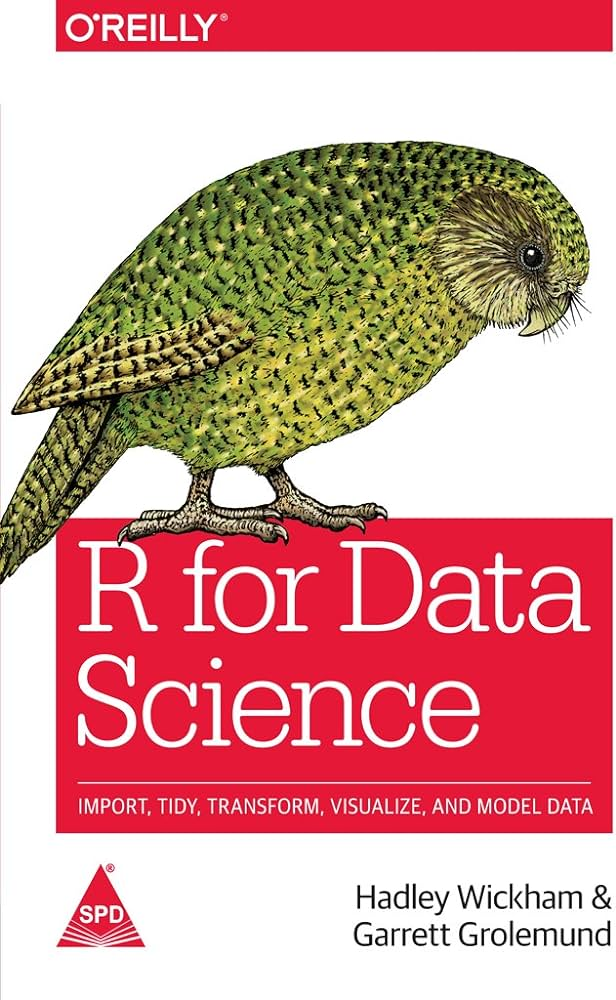
- Authors: Hadley Wickham & Garrett Grolemund
- Website: Amazon.com
About the Book: This book is for anyone interested in or enthusiastic about using the R programming language for data science tasks. It provides clear explanations and is suitable for those looking to pick up a new language for data science or explore interesting and unusual aspects of the field.
5. Data Science from Scratch
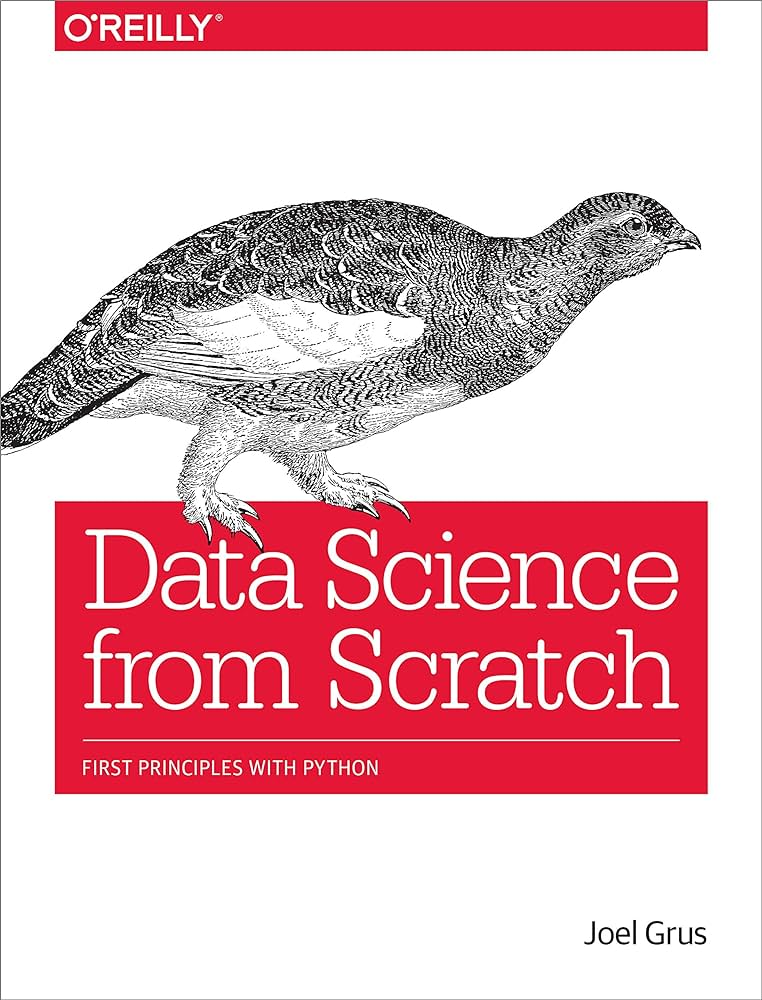
- Author: Joel Grus
- Website: Amazon.com
About the Book: Starting with a crash course on Python, this book covers data visualization, probability, hypothesis testing, linear algebra, statistics, machine learning, neural networks, recommender systems, network analysis, and more. It offers a comprehensive approach to data science and is recommended for readers looking for a complete guide.
6. Build a Career in Data Science
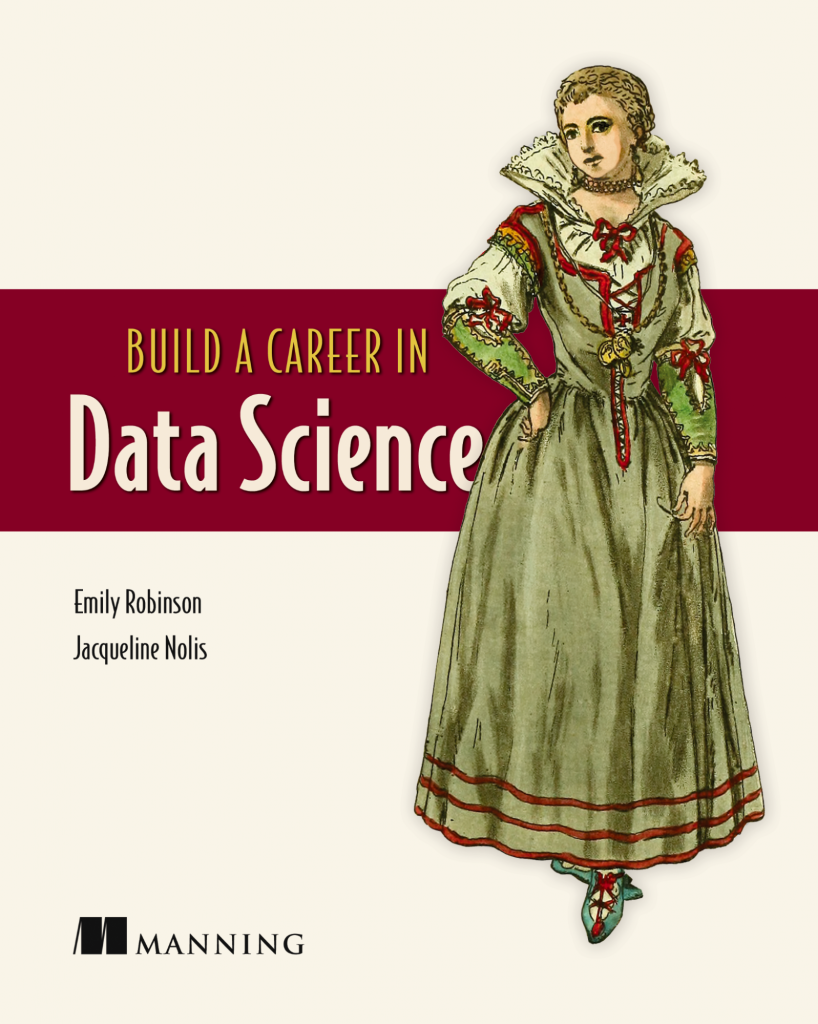
- Authors: Emily Robinson and Jacqueline Nolis
- Website: Amazon.com
About the Book: Isn’t it obvious from its title that this book is more of a career manual than a typical data science book? This book is more of a career guide than a typical data science book. It aims to bridge the gap between knowledge and the practical skills needed for real-world job requirements. It covers the lifecycle of a data science project, how to adapt to business needs, how to prepare for management positions, and offers advice on effectively handling stakeholders.
7. Practical Statistics for Data Scientists
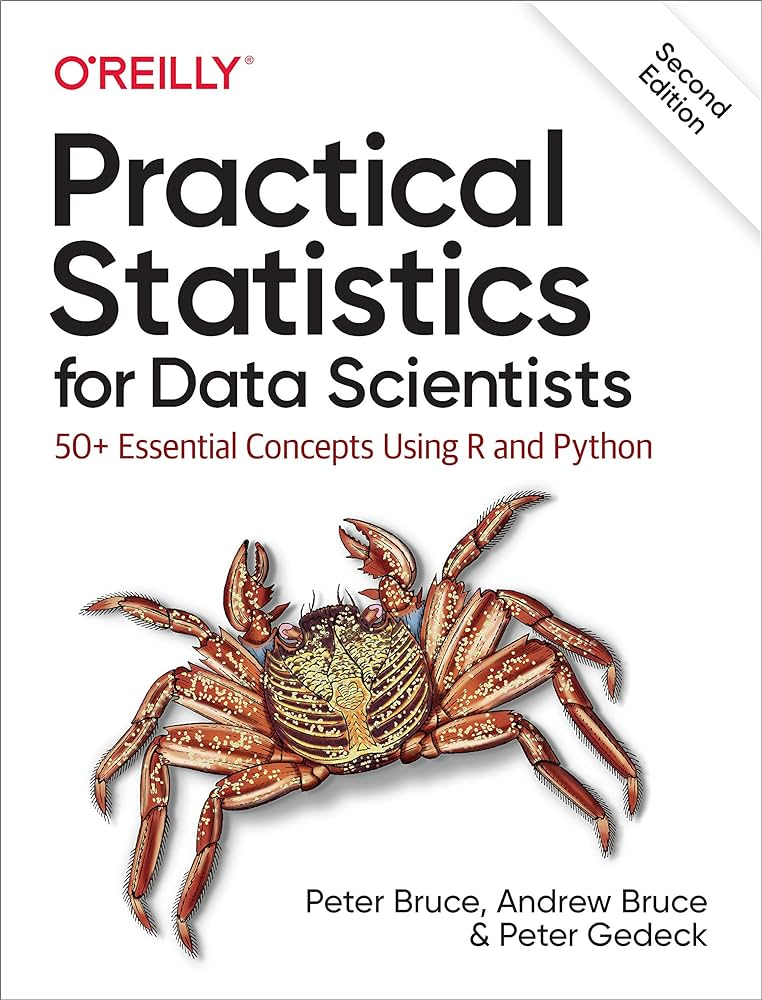
- Authors: Peter Bruce, Andrew Bruce, and Peter Gedeck
- Edition: 2nd Edition
- Website: Amazon.com
About the Book: This book provides a comprehensive overview of concepts essential for learning data science. You’ll discover why exploratory data analysis is an important first step in data science, as well as how random sampling can eliminate bias and give a higher-quality dataset, especially when dealing with large amounts of data. It covers randomization, sampling, distribution, sample bias, and more, with clear explanations and examples. The second edition includes statistical applications in Python, emphasizing concepts important for data scientists. An overview of machine learning models is also included in the book, which is a pleasant surprise.
Top Data Science Books for Experts
8. Essential Math for Data Science: Calculus, Statistics, Probability Theory, and Linear Algebra
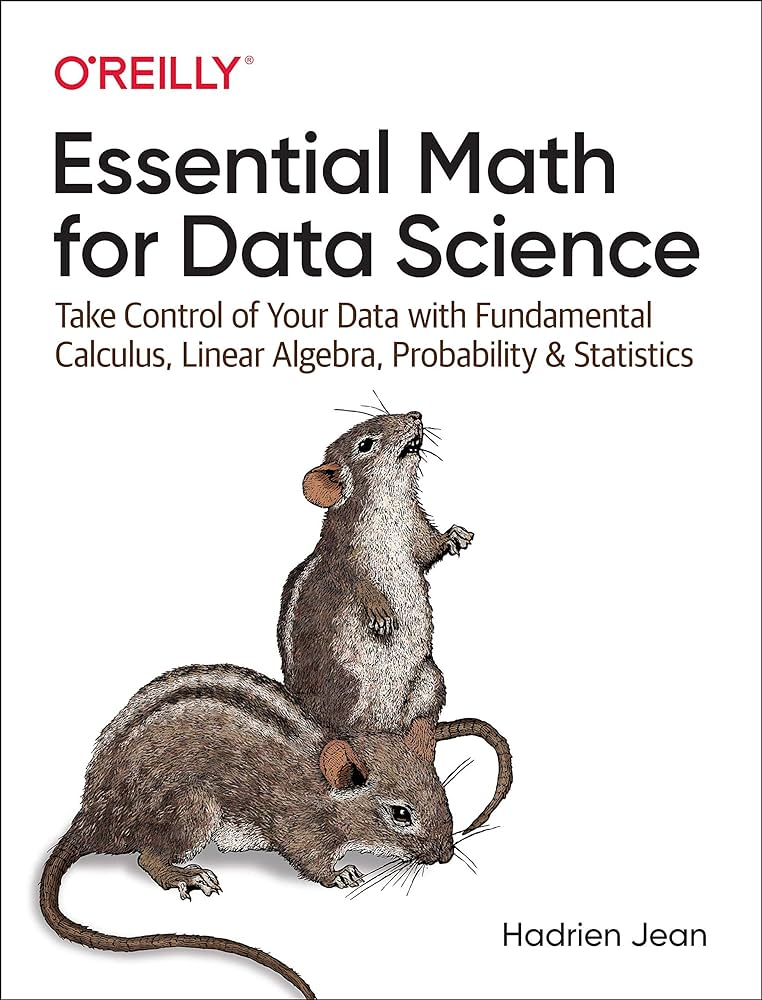
- Author: Hadrien Jean
- Website: Amazon.com
About the Book: This book aims to clarify the mathematics underpinning deep learning, machine learning, and data science. It assists readers in developing their skills to enhance their capabilities in the field of data science. The book also delves into machine learning frameworks such as TensorFlow and Keras illustrating how Python and Jupyter can be utilized to plot data and visualize transformations in space. To thrive in the realm of data science, a level of proficiency in mathematics is necessary, and this guide offers an overview of the math required for data science, covering topics such, as probability, statistics, hypothesis testing, linear algebra, machine learning and calculus.
9. Hands-On Machine Learning with Scikit-Learn & TensorFlow
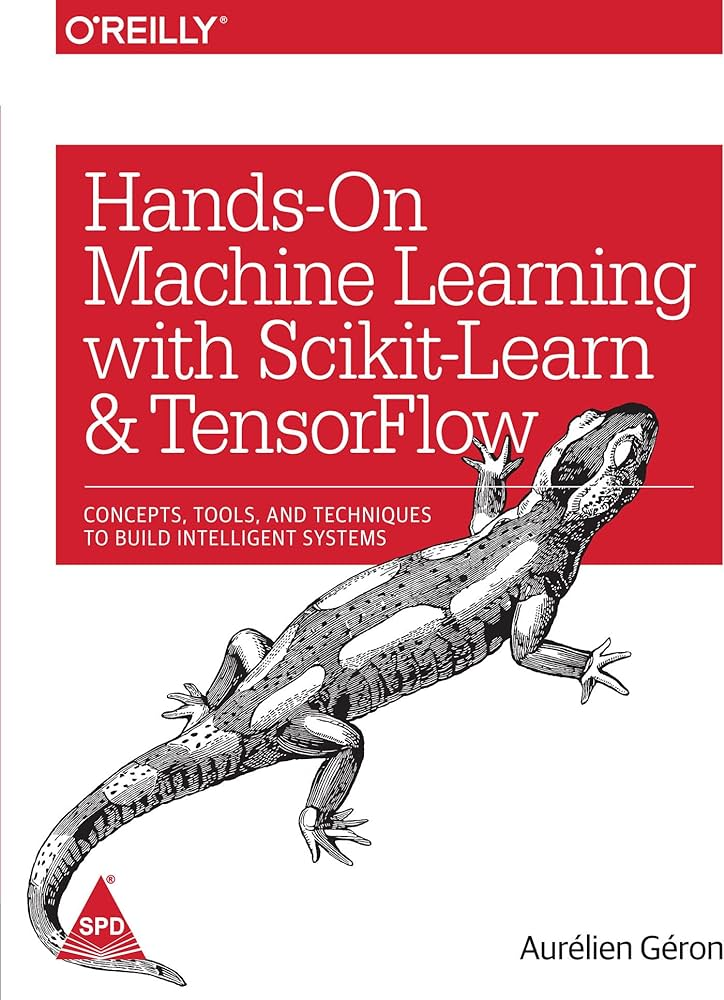
- Author: Aurélien Géron
- Website: Amazon.com
About the Book: This book provides an in-depth exploration of theories, methods, and machine-learning algorithms for creating intelligent systems. Readers will gain expertise in a range of methods starting from linear regression to deep neural networks. The book is tailored for individuals with programming experience, and each chapter includes practical exercises. It emphasizes the use of Scikit Learn and TensorFlow to navigate the field of machine learning, track machine-learning projects end-to-end, and delve into training models and neural net architectures.
10. Storytelling with Data: A Data Visualization Guide for Business Professionals
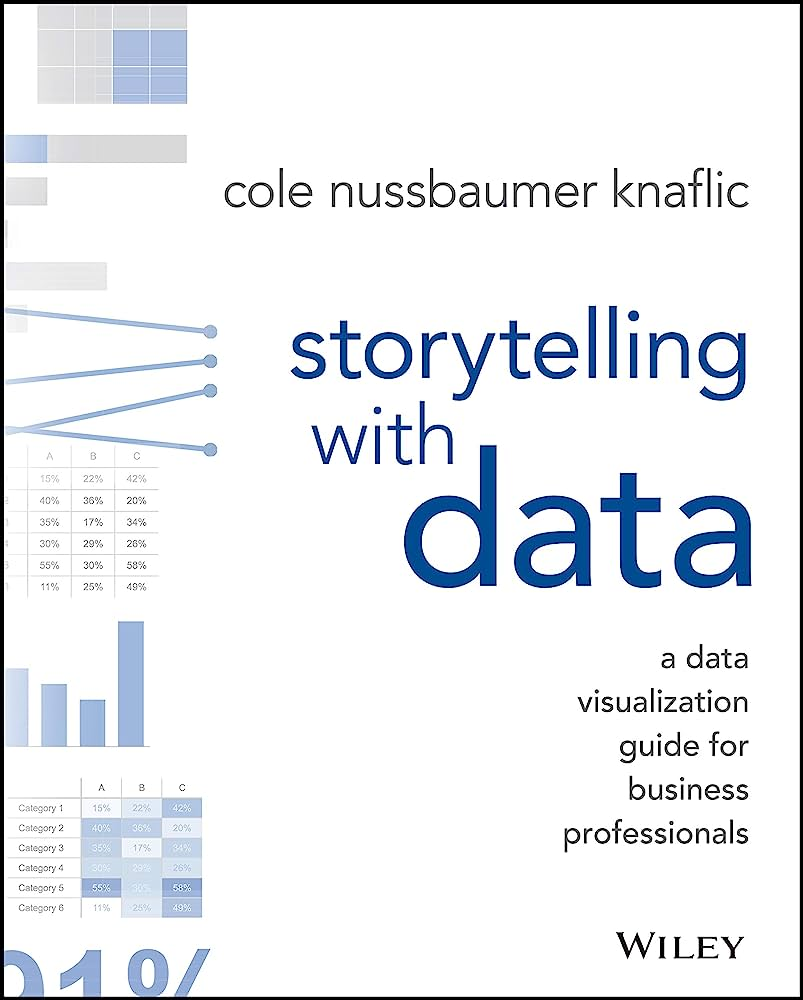
- Author: Cole Nussbaumer Knaflic
- Website: Amazon.com
About the Book: “Storytelling with Data” by Cole Nussbaumer Knaflic explores the fundamentals of effective data visualization and communication. The book provides theoretical lessons and practical examples to enhance data presentation skills, emphasizing the creation of captivating and informative narratives with data. It is a valuable resource for those interested in data science for business, guiding readers on how to tell compelling stories with their data.
11. Smarter Data Science: Succeeding with Enterprise-Grade Data and AI Projects
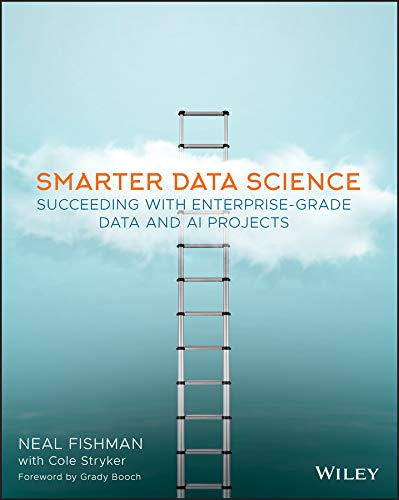
- Authors: Neal Fishman (Author), Cole Stryker (Author), and Grady Booch (Foreword)
- Website: Amazon.com
About the Book: “Smarter Data Science” addresses common flaws in data science projects by examining their frequent failures at the business level and suggesting solutions. Intended for directors, managers, IT specialists, and analysts, the book guides readers on scaling data science initiatives efficiently, making them foreseeable, repeatable, and advantageous to the entire enterprise. It emphasizes developing meaningful data science programs and winning over stakeholders for successful enterprise-grade data projects and AI goals.
12. Deep Learning
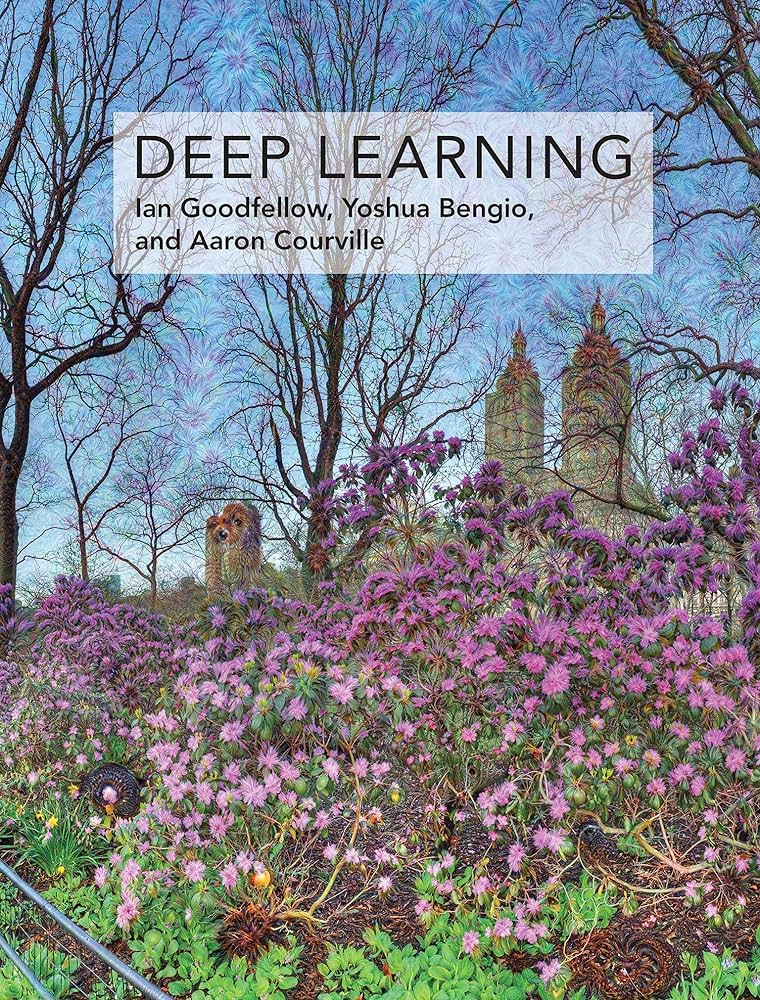
- Authors: Ian Goodfellow, Yoshua Bengio, & Aaron Courville
- Website: Amazon.com
About the Book: The text covers relevant concepts in linear algebra, probability theory and information theory, numerical computation, and machine learning, as well as mathematical and conceptual backgrounds. Deep feedforward networks, regularisation, optimization algorithms, convolutional networks, sequence modelling, and practical methodology are among the deep learning techniques described by industry practitioners. The relevance of deep learning is explained in this book, as are the algorithms of backpropagation, convnets, and recurrent neural nets; unsupervised deep learning; attention mechanisms, and more.
13. Pattern Recognition and Machine Learning
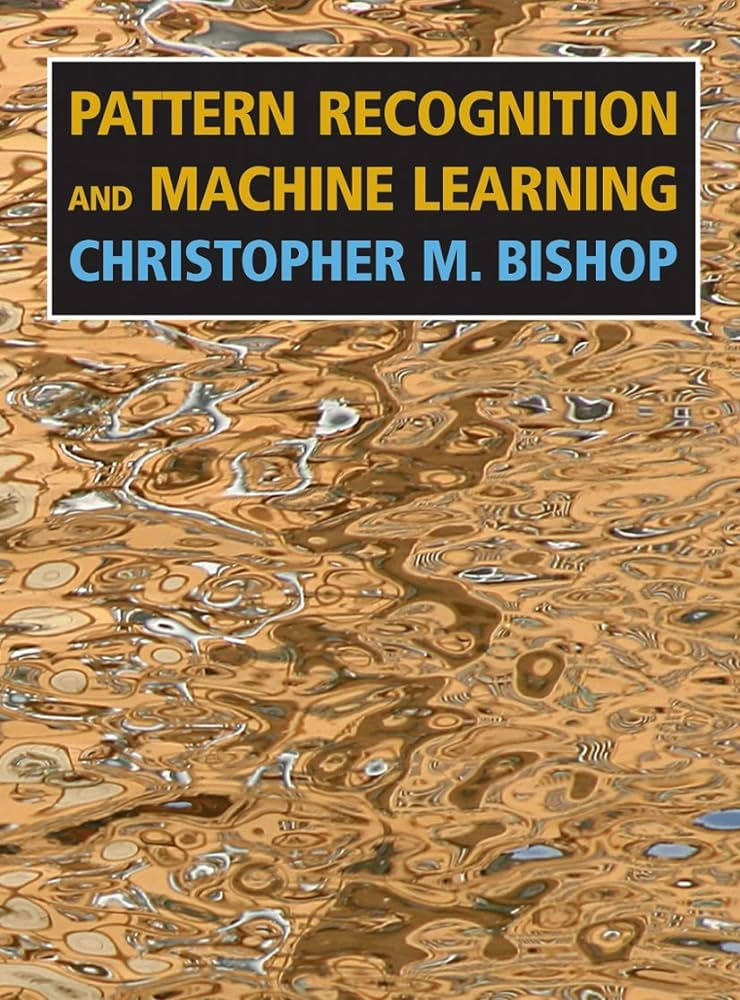
- Author: Christopher M. Bishop
- Website: Amazon.com
About the Book: In cases where exact solutions are not possible, the book introduces approximate inference methods that allow for quick approximate replies. When no other books employ graphical models for machine learning, it uses them to characterize probability distributions. It is not assumed that you have any prior knowledge of pattern recognition or machine learning ideas. It is comprehensive and explains concepts straightforwardly using examples. Certain terms may be difficult to understand for some readers, but you should be able to get by with the help of other free resources such as web articles or movies.
14. Data Science and Big Data Analytics
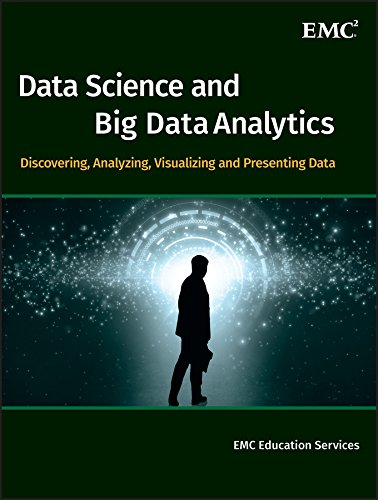
- Editor: EMC Education Services
- Website: Amazon.com
About the Book: Published by EMC Education Services, “Data Science and Big Data Analytics” covers a range of techniques, approaches, and tools employed by data scientists. It focuses on principles, concepts, and real-world examples applicable to any industry and technology environment. The book is supported and explained with examples replicable using open-source software. It is a comprehensive guide for individuals aiming to become contributors on a data science team, deploy structured lifecycle approaches to data analytics problems, apply appropriate analytic techniques to big data, and tell compelling stories with data.
Conclusion
We’re confident that these books will enable you to enter the field of data science. There are hundreds, if not thousands, of books relating to data analytics and data science. Don’t be intimidated by the large number of books available. Make the finest decision possible. Finally, I wish you the best of luck in your data science activities. Although it may not be simple, reading these books will provide you with a useful experience.
FAQs
Q.1: Are 6 months enough to become a Data Scientist?
Becoming an expert in any field takes time. Data science is a wide topic. An individual may gain a sufficient amount of knowledge to enter the IT industry for entry-level roles with preparation of 6 months. But the journey doesn’t end here. You need to keep up with your learning to make your career in data science.
Q.2: Is Python best for data science?
It is one of the most popular languages used by data scientists for a variety of projects and applications. Python has a lot of features for dealing with arithmetic, statistics, and scientific functions.
Q.3: What programming language is best for data science?
The two most popular languages for data science are Python and R. The selection can be made based on which language you are comfortable with and you have experience with.
Q.4: Is Data Science hard?
Yes, data science is a bit hard but having proper guidance, a correct career path, and being self-motivated can make your journey easier.


